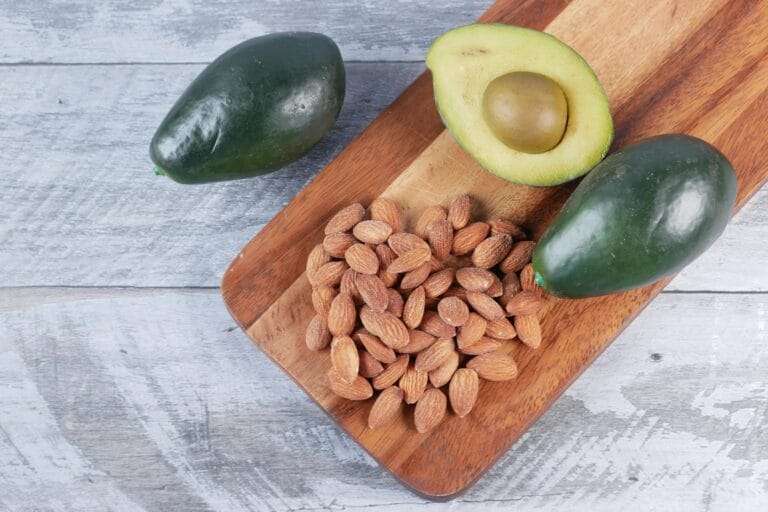FREE SHIPPING OVER $50
10 Powerful Plant Proteins That Can Replace Meat—Plus 3 Nutrients You Might Be Missing

Switching to a plant-based diet is a powerful choice. It’s great for the environment, for animal welfare, and for your health. But if you’ve ever told someone you’re going vegan, you’ve probably heard the same question over and over again: “But where do you get your protein?”
The idea that you can’t get enough protein from plants is one of the most persistent myths in nutrition. The truth is, it’s easier than you think to get all the protein you need and more from a variety of delicious plant foods. We’re going to bust the biggest myths about plant protein and give you a comprehensive guide to 10 powerful sources that can stand up to any meat. We’ll also dive into the three crucial nutrients that a plant-based diet might be missing, and what you can do to ensure your body is thriving.
The Plant Protein Myth: What You Need to Know
The myth that plant protein is inferior to animal protein is based on an outdated understanding of nutrition. Here’s the truth you need to know:
- Amino Acids and Complete Protein: All protein is made of building blocks called amino acids. There are 20 amino acids, nine of which are considered “essential” because your body can’t produce them. A “complete protein” contains all nine essential amino acids in the right proportion. While most animal proteins are complete, some plant proteins are not. But here’s the game-changer: you don’t have to eat a complete protein at every single meal. As long as you eat a variety of different plant foods throughout the day, your body will have all the building blocks it needs to create complete proteins.
- Quality vs. Quantity: The quality of plant protein is just as good as animal protein. What matters is the total amount of protein you eat in a day. With a little knowledge, you can easily meet your protein goals, build muscle, and stay satiated on a plant-based diet.
10 Powerful Plant Proteins That Can Replace Meat
These are the unsung heroes of the plant-based world. They’re packed with protein, fiber, and a host of other nutrients.
1. Lentils
These small but mighty legumes are a staple of plant-based nutrition. A single cup of cooked lentils packs a powerful punch, with about 18 grams of protein. They’re also loaded with fiber, which aids digestion and helps you feel full. You can add them to soups, stews, or use them as a base for hearty salads.
2. Chickpeas
From creamy hummus to roasted snacks, chickpeas are incredibly versatile. One cup of cooked chickpeas provides around 15 grams of protein. They are also a great source of fiber and complex carbohydrates, providing sustained energy throughout your day.
3. Hemp Seeds
These tiny seeds are a true superfood. Just three tablespoons of hemp seeds contain about 10 grams of protein and are a complete protein source. They are also rich in omega-3 fatty acids, which are crucial for heart health and brain function. You can sprinkle them on salads, blend them into smoothies, or mix them into oatmeal.
4. Quinoa
Often mistaken for a grain, quinoa is actually a seed. It’s a powerful source of plant protein because it is one of the few plant foods that is a complete protein. A cooked cup of quinoa provides 8 grams of protein, along with fiber, magnesium, and other essential nutrients.
5. Tofu and Tempeh
Made from soybeans, these two staples of plant-based cooking are excellent protein sources. Tofu has a mild flavor and a soft texture, making it perfect for absorbing marinades. Tempeh, a fermented soy product, has a firmer, nuttier texture and provides around 15 grams of protein per half-cup.
6. Edamame
These young soybeans are a delicious snack or a great addition to salads and stir-fries. A cooked cup of edamame contains about 18 grams of plant protein and is a complete protein source. They are also a good source of fiber and vitamin K.
7. Nutritional Yeast
This is a game-changer for plant-based cooking. With a cheesy, nutty flavor, nutritional yeast is often used as a cheese substitute. But it’s also a powerful protein source, providing about 8 grams of protein in a quarter-cup. It’s also fortified with Vitamin B12, a crucial nutrient for vegans.
8. Spirulina
This blue-green microalgae is a nutritional powerhouse. Just a couple of tablespoons of spirulina powder contain about 8 grams of protein. It’s incredibly nutrient-dense and is a great addition to smoothies.
9. Seitan
Made from vital wheat gluten, seitan is often called “wheat meat” because of its dense, meat-like texture. It’s an incredibly rich source of protein, with about 25 grams per 3.5 ounces. It’s an ideal choice for anyone looking for a hearty, high-protein meat replacement.
10. Ezekiel Bread
Unlike most breads, Ezekiel bread is made from sprouted grains, which makes the protein more bioavailable. It contains all nine essential amino acids, making it a complete protein source. Two slices of Ezekiel bread contain about 8 grams of protein.
Beyond Protein: 3 Key Nutrients You Might Be Missing
While getting enough protein on a plant-based diet is easy, there are a few key nutrients that require more attention. With a little knowledge and a few simple strategies, you can ensure your body has everything it needs to thrive.
1. Vitamin B12
This is the most crucial nutrient for vegans to monitor. Vitamin B12 is essential for nerve function and the formation of red blood cells. It is naturally found in animal products and is not produced by plants. The only way to get enough Vitamin B12 on a plant-based diet is to eat fortified foods (like nutritional yeast or plant-based milks) or, more reliably, take a supplement. A daily supplement is a non-negotiable for all vegans.
2. Iron
You’ve probably been told that plant-based iron isn’t as good as animal iron, and that’s partly true. Plant foods contain non-heme iron, which is not as easily absorbed by the body as heme iron from meat. However, you can significantly increase your iron absorption by pairing iron-rich foods with foods high in Vitamin C. For example, add lemon juice to a spinach salad or bell peppers to a black bean stir-fry.
3. Zinc
Zinc is a vital mineral for your immune system and metabolism. While many plant foods contain zinc (like pumpkin seeds and legumes), they also contain phytates, which can inhibit its absorption. To ensure you get enough, focus on a varied diet and consider soaking or sprouting your legumes and grains to reduce phytates.
Putting It All Together: A Meal Plan for Plant-Based Gains
A successful plant-based diet is all about variety and pairing. Here is a sample meal plan that shows you how to easily incorporate these protein sources and other nutrients.
- Breakfast: Oatmeal topped with a tablespoon of hemp seeds for protein and a handful of berries for Vitamin C to aid iron absorption.
- Lunch: A hearty bowl of lentil soup with a side of whole-grain bread and a citrus-based salad dressing.
- Dinner: A tofu stir-fry with a variety of colorful vegetables, including broccoli and bell peppers, served over a bed of quinoa. This meal provides a range of plant proteins, fiber, and nutrients like zinc and iron.
- Snack: A handful of edamame or a spoonful of almond butter with an apple.
Conclusion
The belief that you can’t get enough protein from plants is a myth that we can now put to rest. By understanding the basics of amino acids and a handful of powerful plant foods, you can easily meet your protein goals and thrive on a plant-based diet. With a little planning and attention to key nutrients like Vitamin B12, iron, and zinc, you can ensure your body has everything it needs to be strong, healthy, and vibrant. Going plant-based isn’t a sacrifice; it’s a powerful and empowering choice.
Related Articles
- Want Glowing Skin and Stronger Immunity? These 10 Foods Supercharge Your Glutathione Naturally
- This Overlooked Fruit Could Be the Key to Balanced Blood Sugar—Longevity Experts Are Talking
- Harvard-Backed Japanese Walking Method That Balances Blood Sugar and Pressure Naturally
- Feeling Off? These 10 Foods Could Be Messing With Your Estrogen
- 10 Everyday Foods That Quietly Kill Your Testosterone—Are You Eating Them?







